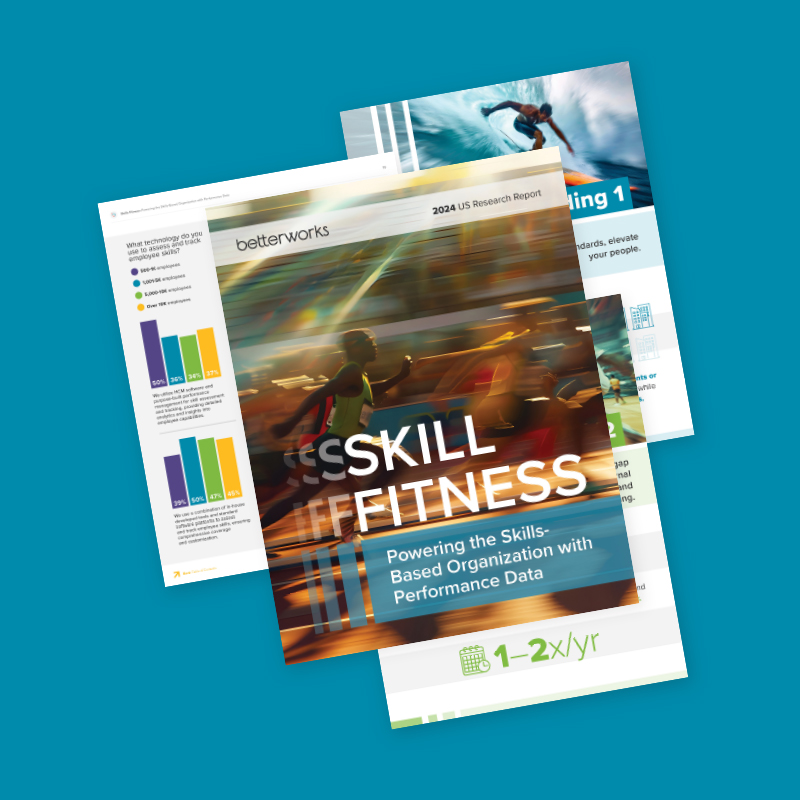Andrea Lagan is the Chief Operating Officer and Chief of People at Betterworks. She offers her perspective on how HR leaders can renew their passion and power.
Today is Human Resource Professional Day. Its purpose is to recognize the community of HR professionals and increase awareness about the role of HR.
Before you shrug this off as just another day of recognition that people will forget tomorrow, I’d like to take a moment to say to every HR professional reading this: Give yourself this well-deserved recognition for what you have endured and accomplished, especially the past 2 ½ years. There’s been a lot of give, give, give on your end, and not always a lot return to you in the form of sanity and stability.
You have struggled mightily since the pandemic changed everyone’s lives in 2020. You have pivoted and managed through changes, challenges, and demands with perseverance and empathy. Through the pandemic and the trials of working parents and kids (including your own families) suddenly being thrust home and undertaking work and schooling in the same space. Through your employees’ stresses. Through COVID protocols, remote and hybrid work, the Great Resignation, and now the challenges of quiet quitting. You have focused on maintaining a strong company culture, and you have enabled a level of sanity in your organizations and provided a calming influence that helped others remain productive, engaged, and able to cope. You have guided first-time managers and served as an empathetic sounding board to seasoned managers trying to figure out how to guide their teams remotely. Here’s to you!
It’s no wonder that many of you are tired. I’ve also seen the recent polls that suggest 98% of us are burned out and 88% percent dread coming to work, and others that say nearly half of us are looking for a new job.
Maybe you’ve already firmly made the decision to move on and there’s no turning back. But if you have even a small measure of hope and desire to stay in the profession – or if you’re relatively new to HR and have trepidation, I’d like to offer a few recommendations and words of encouragement. Let me know what you think and if you have other recommendations and words of encouragement to share with others.
Connect to your peers
There are a number of really valuable HR communities out there, and HR leaders should take advantage of these to talk with like-minded individuals. You are undoubtedly handling some of the very same challenges they’re tackling, and you can learn a lot from others’ successes and failures. These groups can be a fantastic source of emotional support as well. I highly recommend this index of HR communities.
Reach out to colleagues in other functions
As HR professionals, compliance with company and employment policies and practices are always important, but that doesn’t mean we can’t have strong and strategic business partnerships with colleagues in other functions. I believe we are sometimes hesitant to have conversations with our peers on other teams or in other departments because we feel that we should have the answers to the challenges we face. But talking with a colleague in Engineering or Customer Success, for example, might help us think differently about our approach to solving a problem or offer us a sounding board. This gives us different perspectives that we might leverage to problem solve without revealing confidential or sensitive information. These peers then have more of an opportunity to learn from us when it comes to handling challenging people issues, allowing them to be stronger leaders and resolve issues before they become a problem.
Push past the stereotypes
As you partner and connect with other functional leaders in your organization, the more likely you will be to push past some of the stereotypical views of HR being just policy and compliance focused. The past couple of years have given HR leaders the opportunity to prove how valuable they are to the success of the business. Now that the pandemic is (mostly) behind us, it’s incumbent upon us to continue reinforcing the strategic value HR brings to both the employee and the organization. As we saw throughout the pandemic, our people are the essence of the organization. We were forced to see (and fix!) those legacy processes and systems that didn’t support what our employees needed in this new world of work. We have to continue this very important work of driving our organizations toward those changes that better enable employees and managers to show up and help their employers succeed through whatever new challenges come our way.
“It’s incumbent upon us to continue reinforcing the strategic value HR brings to both the employee and the organization.”
— Andrea Lagan, COO and Chief of People, Betterworks
Lean into technology and partners
A key part of ensuring our people and our organizations are successful and adaptable to the changes in the world around us is picking and using the right technology to support our growth and innovation. Becoming savvy about and investing in the right HR technology can do so much to help your employees and managers develop and grow. It can give all leaders much better insights into strengths and weaknesses in an organization so they can be leveraged and improved upon for the benefit of all, including company shareholders.
I have learned through the years that one of the most important decisions I can make to support my company is in selecting a scalable, innovative technology backed by a partner who also understands how important my success is in using that technology. I can’t emphasize this enough: ALWAYS tap into your technology partners for best practices support, innovative program guidance, and thought leadership. And if you don’t have a technology partner who does this with you, find one or find a new one. The best technology partners come to the table with ideas and recommendations for how to alleviate some of the day-to-day challenges that exist in most organizations. Leaning on this outside expertise can also give gravitas to the objectives you want to accomplish.
“One of the most important decisions I can make to support my company is in selecting a scalable, innovative technology backed by a partner who also understands how important my success is in using that technology.”
— Andrea Lagan
Broaden your experiences
When I started in my career, I really wanted to experience and understand every function in the business. What is most impactful to that function? How does it impact the growth of the company? I loved learning about those different areas because they are all about the people who drive the business, what those people need, and how they deliver outcomes for customers. The most important conclusion I came to in my career is how tightly aligned the strategies are between what it takes to make employees successful and what it takes to make customers successful. Every company needs both.
My advice to other HR professionals is to gain some experience beyond the HR domain. Look for opportunities where you can gain experience or have greater visibility into the ins and outs of what it’s like to work in a sales, product, or a marketing role, for example. By understanding how the people in these roles think and act throughout their day, you’ll gain a broader perspective of the business and a higher level of empathy than if you remain solely in HR for your career.
Take care of yourself
This has been said many times in articles and podcasts, and it bears repeating. Take the advice that you give to your employees about self-care. We in HR tend to be good at doling out advice, but are less so about acting on it ourselves. There’s a reason why airlines tell you to put on your oxygen mask first during an emergency before helping someone else with theirs. If you don’t take care of yourself, you’ll be far less effective at helping others.
You are the next CEOs
Many HR leaders have broadened their scope and influence in their organizations in the past few years. They have had to think about how to drive the business and what it takes to be successful. This really comes down to helping our people engage, develop, and flourish. It used to be that CEOs rose from the ranks of Sales or Product, but I think the greatest leaders of the future are going to come from HR. Business success is really about people success, and HR leaders are perfectly positioned to make this happen.
Interested in learning how you can unlock the potential of your talent and help your organization and people flourish? Register for our virtual Make Work Better Summit on November 16, 2022.








